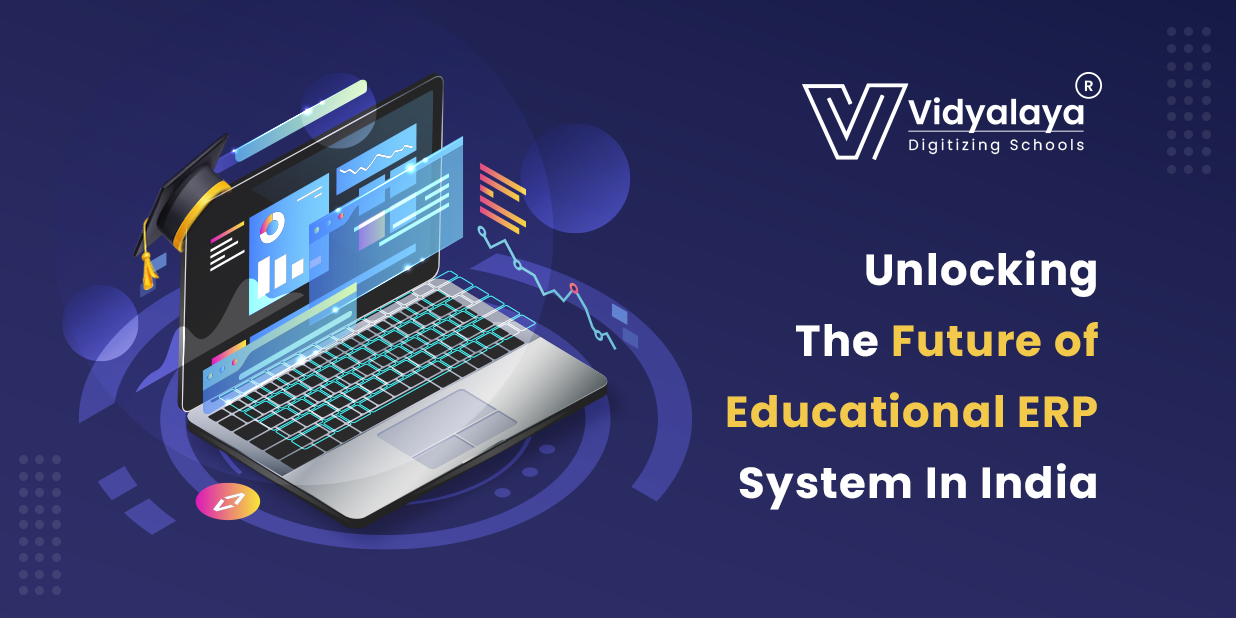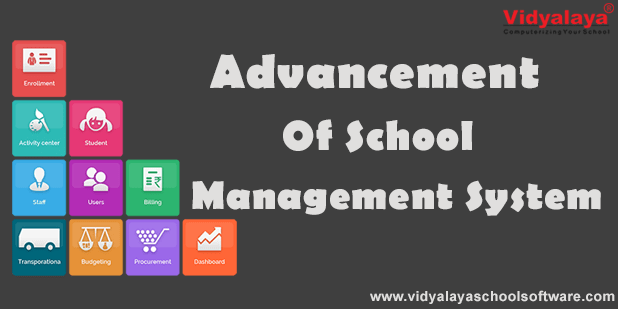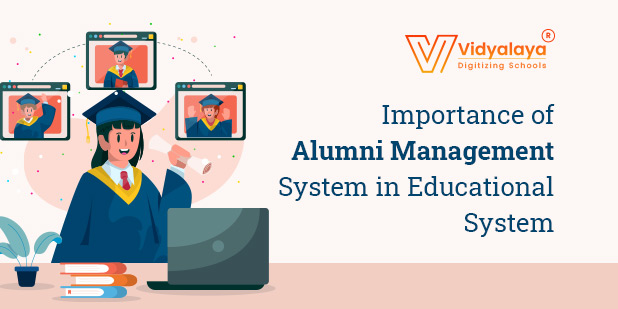For everyone who has enjoyed his/her school time, school memories are unforgettable always. Time spent with friends, teachers, the ambiance, cultural activities, and stuff like these make the entire journey wonderful. Along with fun and enjoyment, sincerity and dedication to learning new things were the keystones of success. When technology comes into this picture, standards of education remain high. Routine activities get automated, improved communication, real-time data access, and much more! An Educational ERP system envelops all the departments and brings efficiency in core processes like admission, payroll, academics, and events.
According to recent reports, the Indian educational ERP software market is expected to reach US$3.49 billion by mid-2024 with a projected CAGR rate of almost 13%. This underlines the demand for and acceptance of technology-aided education in India. Especially after the COVID-19 pandemic, this aspect is growing like never before. The ease in operations, accurate results, no-brain data handling, automation of processes, and efficiency are some reasons behind them. Let’s see how this will be a revolutionary change in India’s education sector!
What is Education ERP System?
Not a newbie! An Education ERP System is a complete software that handles and streamlines entire educational processes like admission, payroll, timetable and exam management, event, fee management, and others. With high-end automation, the product cuts down human intervention and improves the accuracy and efficiency quotients. Real-time but secure access to data and instant reporting makes the educational ERP software a must-have thing for todays’ educational institutes.
What are the challenges of Education ERP Implementation in India and What are the best possible solutions for them?
Adoption for the Educational ERP system has indeed reached its peak in India but there are still some challenges for the entire country to be on the same page. Let’s discover what are the major challenges and discuss the best possible solutions of ERP system implementation in India:
Challenge #1– No Clarity about Prerequisites – Educational institutes in India do not have a clear picture of what they want or what they need.
Solution– Before adopting an Education ERP Software, one must have a detailed list of prerequisites. Only clear requirements can lead you to the apt product. Meet various vendors, and exhibitions, discuss, research, and then go for a suitable product that fulfills your requirements.
Challenge #2 – Lack of Training – Institute staff doesn’t get sufficient training to handle the software.
Solution– You can ask the vendor to conduct sessions to train the staff. Encourage staff to operate the system, give them rewards, and convince them. Allocate some free time from the regular schedule only for software training.
Challenge #3– Low-Quality Testing– Lots of pain points and data inaccuracies due to poor testing.
Solution– Many institutes drop the idea of implementing of Educational ERP Solutions mid-way when they encounter lots of pain points and/data inaccuracies. But this can be avoided by implementing multi-level, strict, and thorough testing. Vendor project management can be improved such that team members get sufficient testing time and all test criteria get ticked.
Challenge# 4– Poor Support after Deployment
Solution– Educational institutes must ask for robust support even after deployment. Nowadays, there are various mediums are available like chat, VC, emails, in-person, phone, and remote. A strong support will definitely encourage the ERP implementation process.
What are the Implementations of Educational ERP Software in India?
As every institute has its own set of principles, practices, and codes of conduct, it becomes mandatory for vendors to fulfill the requirements. Apart from getting praise and a leading position in the throat-cutting race, the adoption of Educational ERP software leads to recognition in state or nationwide accreditation. Just fancy features are not sufficient to sustain this position. Educational institutes need to concentrate on collaborating with such products to fulfill administrative functionalities. Apart from this, there are two areas which must be ticked for an ideal Educational ERP system implementation:
Functional Prerequisites:
This covers core functionalities like student, institute, staff profile, curriculum design, library, transport, exam and timetable management, hostel management, admissions, alumni management, evaluation and report card management, etc.
Non-Functional Prerequisites:
This focuses on non-functional characteristics of the Educational ERP solutions so that standards are maintained and the desired level of fulfillment is offered to the end-users. This area will look after response time, compliance, accessibility, efficiency, data privacy, disaster recovery, etc.
Implementation Phases of Educational ERP Software:-
An Educational ERP Software implementation undergoes various phases, the core of them are detailed below:
1. Research:
This first phase undergoes lots of ups and downs. Vendors need to come with an analysis team, who will lead the research and layout planning. This process also covers target dates, resources, day-to-day project management, and budgetary discussions. Also, they discuss thoroughly with the client, and some crucial things like data storage policies, technology confirmation, release type, and others are finalized.
2. Design:
Design team of the vendor thoroughly understands the requirements and comes with some prototype designing models. Suggestions, improvements, and changes are discussed with the institute, and designs are finalized to hand over to the development team.
3. Development:
Team has approved design requirements, based on which, they start developing the actual system. They check with the existing tools or software for integration and accommodate the development accordingly. While this development goes on, user manuals and documentation also start to train the users. Data migration planning also gets started at a later stage.
4. Testing and Development:
Testing and development processes occur parallelly. Developers release some modules to testing team covering some of the functionalities. Testing team thoroughly tests and reverts if errors or inaccuracies occurred. Development team fixes the issues and releases the revised module. This process continues until no error zone is accomplished.
5. Deployment:
Here the educational ERP software actually gets deployed at the client side. Team members go actually at client’s place or some work remotely to complete the deployment. They offer training to the users and set the scheduling based on requirements.
6. Support and updates:
Even after deployment, the implementation process doesn’t come to an end. Like any other software, Educational ERP software gets updated after adding new features, removing unused ones, updating existing process flows, and for various reasons. Vendor team members understand the queries logged by users and clear them.
India has a significant history of a competent and comprehensive education system since its ancient times. Gurukuls, the first residential schools were the origin of India where Saga used to teach their pupils with the highest dedication and discipline. This glory remained continued to date, rather enhanced when technology partners like Vidyalaya and educational institutes joined hands. Today’s institutes are managing and streamlining educational processes with Ace when they are collaborating with Vidyalaya’s Educational ERP system. Not only recent market figures but awareness and need for technology-build EdTech software depict that technology-based education is going to be the future of the education field. This new India is never going to stop and will continue to shine! And, our educational ERP solutions will foster the roots for you!





















